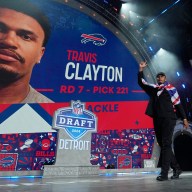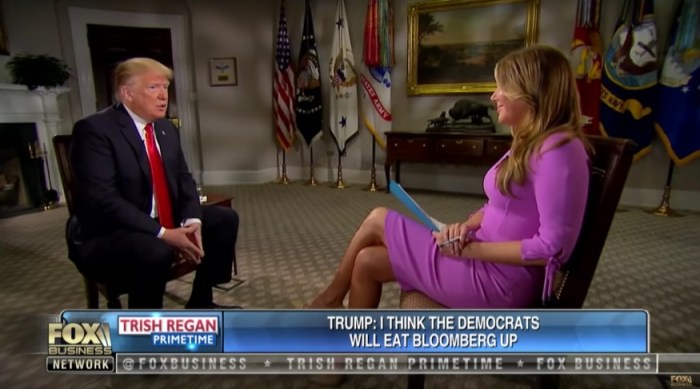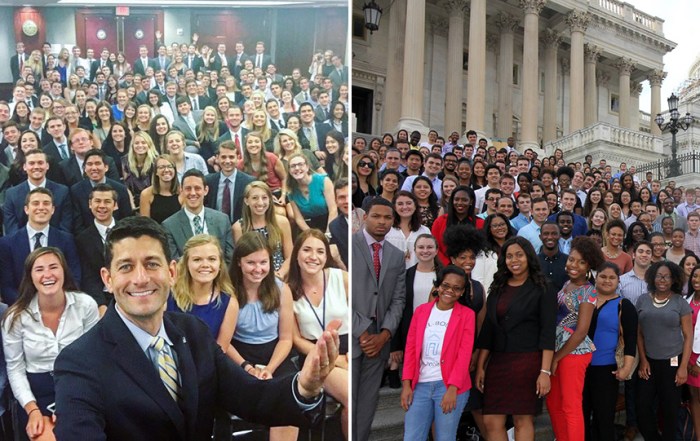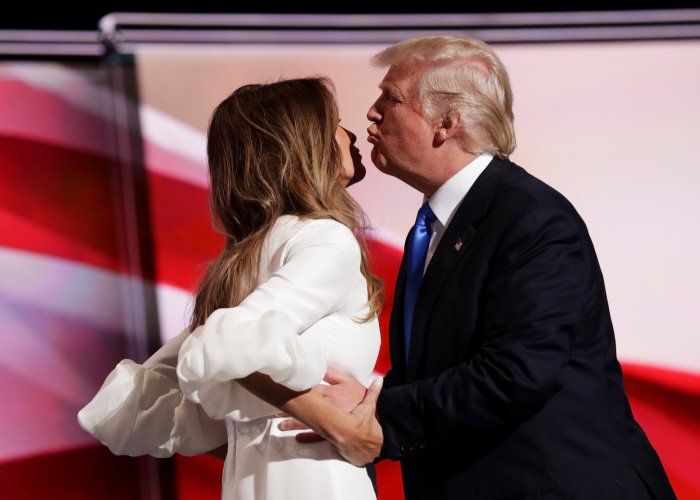DonaldTrumpspeaks volumes in what he doesn’t say.
The Republican presidentialhopefuloften fails to finish histhoughts during hisspeeches, abruptly breaking off a sentence or substituting a vague word for a more precise one.
Those half-finished sentences aren’t throwaways. They’re enthymemes, a rhetorical device at the heart of a persuasive speaking style that has helped catapult the billionaire to the top of national polls ahead of the November 2016 election. To hissupporters,Trumpisa politician who doesn’t sound like one: He says what he thinks, happily insults rivals and can appear unscripted, particularly when he leaves histhoughts to trail off unfinished or peppers sentences with ambiguities. RELATED: Republicans gear up for Supreme Court battle after Scalia’s death Take hiscomments during a recent Republican debate in which he defended hiscall for a temporary ban on Muslims entering the United States: “I talked about Muslims,” he said. “We have to have a temporary something, because there’s something going on that’s not good.” It was left up to the listener to decipher whatTrumpwas saying. What thismeans in practiceisthat supporters can tailor hisstatements to their own beliefs, rhetoric professors said. It also allowsTrump, consciously or not, to avoid boxing himself in with quotes that rivals can use against him. Strictly speaking an enthymemeisa form of argument in which at least one premise remains unstated. The conceptisn’t new – it was described by the Greek philosopher Aristotle – and has been used in American politics in the past. In practice, enthymemes come in various forms, including dramatic pauses, unfinished sentences and the place-filling “somethings”Trumpemploys, according to the experts, who study U.S. public and political speech. In each case, listeners fill in the blanks. Trumphas used enthymemes when taking on Fox News anchor Megyn Kelly and one-time rival Carly Fiorina; he has used them in describing hisopposition to a New York City mosque; he routinely uses them in speeches when talking about subjects ranging from immigration to trade wars. In the case of Kelly,Trump, recounting a heated exchange between them during a televised debate, said she had “blood coming out of her eyes, blood coming out of her – wherever.”
Hisstatement caused a furor among many who concludedTrumphad meant Kelly was menstruating and hormonal and therefore irrational.Trumpdenied it and supporters came to hisdefense, pointing out he had never spoken the words. Trump’s habit of leaving listeners to fill in the blanksisn’t new; it’s apparent in recorded interviews done well before hispresidential bid. And it’s not clear whether he does it consciously. Hisspokeswoman, Hope Hicks, called it a symptom of a racing mind. “People have said Mr.Trump’s speeches are like a game of chess – an intricate web of great genius,” she said.
RELATED:Could Melania Trump be our next First Lady? WHEN ENTHYMEMES BACKFIRE
Enthymemes can have a potent effect on listeners, said Baylor University rhetoric professor Martin Medhurst. “You have involved them psychologically and helped to persuade them by having them persuade themselves.” But the rhetorical device carries risks, especially in instances where the unfinished thoughtisso vague that listeners can complete it with either a positive or a negative statement.
In a Jan. 29 speech, for example,Trumpdescribed hisviews that Chinaisexploiting the United States. “They’ve taken our jobs, they’ve taken our base, they’ve taken our money, and I love China, they get along great with me, I told you I have all these people, I do business with China, they agree with me. They can’t –.” A clip of the statement was shown by Reuters to a group of students in a public policy class at New York’s Hunter College, who disagreed among themselves about whatTrump’s next words would have been. One student, Alexandre Alvalade Ximenes, a freshman studying political science and philosophy, completedTrump’s unfinished thought thisway: “They can’t believe how intellectually inferior we are.” Another, Matthew Locastro, also a political science major, filled in the blank with, “There’s no way they can disagree with him because of hisworking relationship with them.”
Trumpisn’t alone in using enthymemes to effect.
In an interview last September with Rolling Stone,Trumpmocked the looks of Fiorina. “Look at that face. Would anyone vote for that? Can you imagine that, the face of our next president?” To some listeners,Trumpwas communicating that he thought Fiorina was ugly.Trumplater denied he meant that.
Fiorina responded with her own enthymeme: “I think women all over thiscountry heard very clearly what Mr.Trumpsaid.”
The secret behind Trump’s speeches: enthymemes
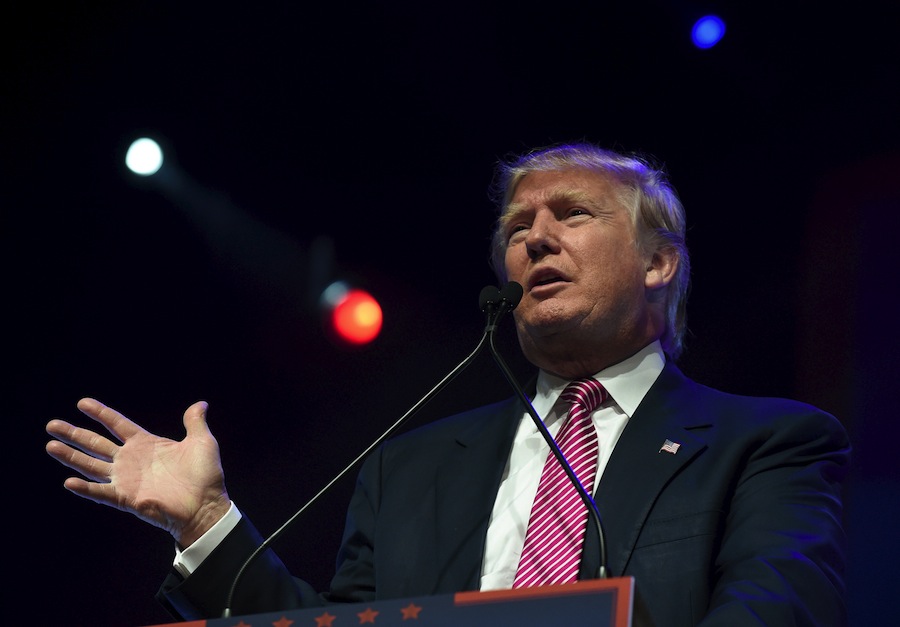
Reuters





